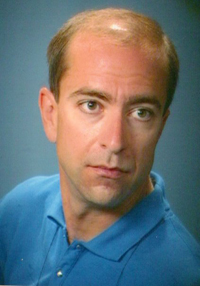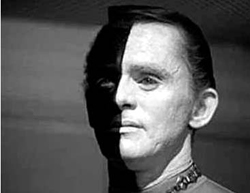Gay rights, Star Trek, Dr. King and the kitchen sink
By James Hufnagel
 |
James Hufnagel |
 |
As government watchdog and the vanguard of political reform in Niagara Falls, this newspaper has a proud history of printing news and commentary that make a real difference "on the ground." It's hard to imagine how life might have turned out here, if not for the Niagara Falls Reporter. I am greatly appreciative of the privilege afforded me over the years, by publisher, Frank Parlato, to write about issues facing our community. It's in the spirit of that sentiment, and as a gay rights activist who twice got up at 2 AM to board a bus for an eight-hour trip to Albany to lobby for gay marriage and has otherwise advocated for gay rights for many years, that I take exception to comments appearing here recently that I consider disrespectful of gay citizens.
Disparaging language against gay people has never made sense to me. For one thing, it smacks of scapegoating. As if there's a need to blame one's problems on this or that subset of humanity. "That immigrant took my job" or "That black guy is getting preferential treatment" or "Those Muslims want to kill me." "That gay couple down the street got married, and that's a threat to my marriage/religious views/society-at-large."
Some regard language denigrating gay people, and bigotry in general, as incomprehensible or irrational, a symptom of mental illness.
It brings to mind a 1969 episode of Star Trek in which the Enterprise rescues a disabled shuttle craft piloted by an alien named Lokai, whose face is white on the right side and black on the left, separated by a sharp dividing line. Lokai pleads for political asylum from Captain Kirk, who grants it. Soon afterward, another alien named Bele beams onto the Enterprise, an individual from the same planet as Lokai whose face is similarly half black and half white, only on reverse sides. Bele claims Lokai is a fleeing criminal and he has come to arrest him.
As the show drags on, it seems Bele and Lokai can't agree about a single thing. They argue. They hurl insults at each other. They get into a fist fight. It's all very personal, and Captain Kirk and crew are mystified as to the source of the animosity between the two. Finally, Lokai reveals the answer, as if it was self-evident: "Lokai is white on the right side. All his people are white on the right side!"
If you don't remember the episode ends as Lokai and Bele return to their lifeless planet, everyone having been killed in a race war. As the Enterprise leaves they are seen locked in death struggle, consumed by their hatred.
Star Trek not only entertained, but often had a moral to the story. The bridge of the Enterprise was a kind of mini-United Nations. Nichelle Nichols played communications officer Uhura. Nichols expressed a desire to leave the series after the first season, but ran into Dr. Martin Luther King at a party and he convinced her to remain on the show because, as a Starship officer, she was a positive role model, a depiction of African-Americans rarely seen on TV in those days, that were really not so long ago.
In 2005, more than 35 years after the show went off the air, George Takei, the actor who portrayed Lieutenant Sulu, helmsman of the starship Enterprise, went public with the fact that he was gay. Little did 1960's parents know that by allowing young Johnny to stay up late on a school night, make popcorn and sit in his jammies watching Star Trek, they were exposing him to the diabolical Takei, sitting there at the spaceship's instrument panel sending out subliminal gay messages to vulnerable lads everywhere, luring them into the homosexual lifestyle as part of a gay agenda.
A 2007 CBS/New York Times poll showed 28% in favor of marriage equality, 38% against (the remainder supported civil unions). Five years later, this past May, the same poll showed a near total reversal: 38% in favor, 33% opposed. The same poll showed those aged 18-44 favored gay marriage by a lopsided 53%. Recent polls (CNN, Gallup) showed upwards of 72% of Americans favored repeal of the military "Don't Ask, Don't Tell" policy, and over 90% of military personnel responded that repeal would have either positive or no impact on unit effectiveness. The US Supreme Court will soon decide that gay people cannot be denied hundreds of marriage benefits under the constitution's equal protection clause. Will that diminish the anti-gay rhetoric? We can only hope.